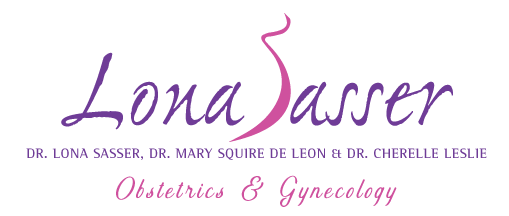IUD vs birth control pills: Both are great options for contraception. But how do you choose? Here’s a simple breakdown.
If you are considering IUD vs birth control pills, you are looking for an effective contraceptive that will work for you and fit your lifestyle. While choosing what birth control is best for you to avoid pregnancy is a very personal decision, we offer some simple information here so you can make the most informed choice.
Of course, nothing beats speaking to your trusted doctor or healthcare professional when it comes to making decisions about your health and your body. Here is what you should know about iud vs birth control, so you can bring your informed questions to your next appointment!
At Lona Sasser Obstetrics and Gynecology, your health is our top priority. Dr. Lona Sasser and Dr. Mary Squire-De Leon are compassionate, experienced doctors who offer an array of gynecological services for patients of all ages in Coral Springs, FL.
To make an appointment, you can easily book online or give us a call at (954) 340-1050.
About intrauterine devices
IUD is short for intrauterine device. IUDs are very small, T-shaped devices, and they are placed inside the uterus by a care provider. Insertion takes just a few minutes, but once the IUD is inserted, it will prevent pregnancy for 3-12 years, depending on what sort of IUD you choose.
Not all IUDs are the same. Some are made of copper and that’s it – no hormones. The copper works to deter sperm from reaching the egg. Others are made of flexible plastic and release hormones slowly over time. These hormone-releasing devices may be a good choice if you are in need of regulating a heavy or especially painful monthly menstrual cycle. They work by releasing progestin, a hormone that is very similar to the natural hormone progesterone.
IUDs are 99% effective at preventing pregnancy, are fully reversible, and provide long-term contraception. If you decide you want to get pregnant, make an appointment to have the device removed. You can get pregnant right away after it’s been removed from your uterus.
About the pill
Birth control pills, known to many simply as “the pill,” are another highly effective contraceptive choice. Birth control pills are affordable and very commonly used to prevent pregnancy and for other health reasons. They are 91% effective but you have to remember to take a pill every day for it to work.
There are two kinds of birth control pills:
- Combination pills that contain both estrogen and progestin – the most common type of birth control pill.
- And progestin-only pills, which only have progestin, the same hormone released by IUDs.
The hormones in the pill work to stop ovulation, which means no egg is released into your uterus. Without an egg to fertilize, there can be no pregnancy.
IUD vs birth control pills
Both IUDs and birth control pills make excellent and empowering contraceptive choices. Once implanted you don’t have to do anything else to prevent pregnancy with an IUD. However, it’s important never to forget your pill and to refill your prescription on time. No matter what you choose, talk to your doctor about side effects or any issues with your medical history that might suggest one is a better choice for you.
You may be interested to know that IUDs that release progestin can also make excellent emergency contraception if inserted within 5 days of having unprotected sex.
And remember, neither can protect you from STDs.
Using condoms every time you have sex is highly effective against getting or spreading STDs. Condoms also protect against pregnancy so using condoms and birth control together gives you the security that you are preventing STDs and pregnancy at once.
Compassionate care
Bring your iud vs birth control pills questions to your Obgyn! We are here to support you. To make an appointment with Dr. Lona Sasser Obstetrics & Gynecology, you can easily make an appointment online or give us a call at (954) 340-1050.
Photo by Reproductive Health Supplies Coalition on Unsplash

